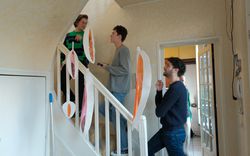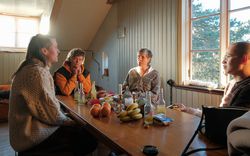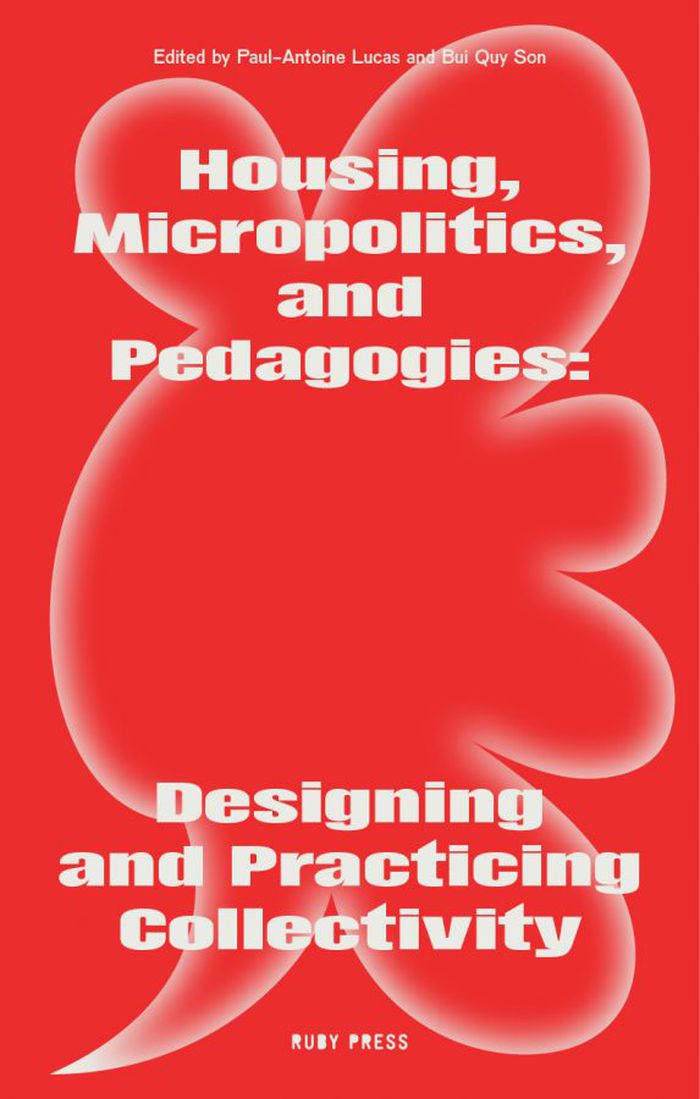queer, queer architecture, queer practice, Paris, conversation, future of architectural practice, Bui Quy Son, Paul-Antoine Lucas, Exutoire, Mahé Cordier-Jouanne, Jean Makhlouta
1 May 2023
Paris: Between Collective Practices and Searching for Queer Spatialities in the City
Bui Quy Son and Paul-Antoine Lucas of Exutoire speak with Mahé Cordier-Jouanne and Jean Makhlouta about queer methodologies and the notion of decentring in architecture
Actions:
articles
1 May 2023
articles
Exutoire, Katarina Bonnevier, queer, Stockholm, Slussen, Bui Quy Son, Paul-Antoine Lucas, MYCKET
19 February 2023
Stockholm: The Excess of Meaning and the Labour of Joy in a Queer Practice of Architecture
Bui Quy Son and Paul-Antoine Lucas of Exutoire speak with Katarina Bonnevier about queer(er) futures for spatial practice
Actions:
articles
19 February 2023
queer, queer architecture, queer practice, Brussels, conversation, future of architectural practice
27 March 2023
Brussels: Struggles, Memories of Shared Experiences and Queer Tactics of Resistance
Bui Quy Son and Paul-Antoine Lucas of Exutoire in conversation with Léa Brami and Alexander Auris about the need for queer failures and the potential of a post-binary, queer world
Actions:
articles
27 March 2023
books
Description:
328 pages : illustrations (some color), plans ; 22 cm
Berlin : Ruby Press, [2025], ©2025
Housing, micropolitics, and pedagogies : designing and practicing collectivity / edited by Paul-Antoine Lucas and Bui Quy Son.
Actions:
Holdings:
Description:
328 pages : illustrations (some color), plans ; 22 cm
books
Berlin : Ruby Press, [2025], ©2025
audio
On Discomfort : Episode 7.
Description:
1 online resource.
[Place of publication not identified] : Failed Architecture, 2023.
audio
[Place of publication not identified] : Failed Architecture, 2023.
$62.00
(available to order)
Summary:
his is a book about socio-spatial dynamics, the intertwinement of design and politics, and the agency of the architect(s) in rethinking collectivity and collective practices in architecture. In response to the commodification of housing and the ongoing global housing crisis, the publication addresses access to adequate housing as a fundamental human right. It looks at(...)
Housing, Micropolitics, and Pedagogies: Designing and Practicing Collectivity
Actions:
Price:
$62.00
(available to order)
Summary:
his is a book about socio-spatial dynamics, the intertwinement of design and politics, and the agency of the architect(s) in rethinking collectivity and collective practices in architecture. In response to the commodification of housing and the ongoing global housing crisis, the publication addresses access to adequate housing as a fundamental human right. It looks at historical and contemporary socially-oriented housing precedents in Norway and Europe to imagine twenty-first- century not-for-profit housing alternatives in Oslo for marginalized populations and diversified family configurations. Beyond formalism, it also argues that innovative architectural solutions in a perspective of systemic societal change need to come from design processes rooted in community, cooperation, and equity. In a later section, the book expands on how radical, emancipatory pedagogies in architecture can facilitate critical thinking and action. The different visions of collectivity put forth here urge spatial practitioners, activists, and students to deeply engage with social justice by means of design and education. With contributions by Paul-Antoine Lucas, Bui Quy Son, Céline Zimmer, Patricia Lucena Ventura, Nagy Makhlouf, Aurélie M. Nzuzi De Mol, Rosaura Noemy Hernandez Romero, María Mazzanti.
Collective Housing



